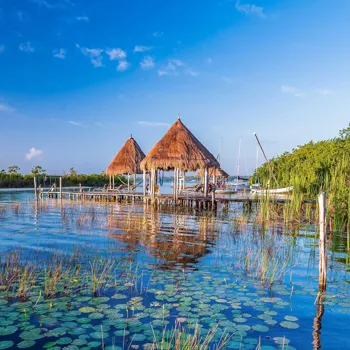Discover the essence of sustainable travel - leaving a positive impact on the places you visit. Dive into responsible tourism!
Travelling is something many of us fancy. Exploring new places, experiencing
different cultures, and creating memories that last a lifetime, all sound incredibly exciting, isn't it?

But have you ever stopped to think about the impact your travels have on the environment and the local communities you visit? Sustainable travel, also known as responsible travel, is all about making choices that minimise negative impacts and maximise positive contributions.
It is about leaving a place better than you found it, ensuring that future generations can also enjoy the beauty and resources our planet offers. Let’s discuss how you can travel more responsibly and leave a positive impact.
Reduce carbon footprint in travel; choose trains over flights, offset emissions, pack light
One crucial aspect of sustainable travel is reducing your carbon footprint. Air travel is a significant contributor to greenhouse gas emissions. Consider opting for train journeys or bus rides instead of flights, especially for shorter distances.
These alternative modes of transport often offer scenic routes and a chance to experience the local landscapes. If flying is unavoidable, try to book direct flights to reduce fuel consumption during take-off and landing.
You can also offset your carbon emissions by donating to environmental organizations that plant trees or invest in renewable energy projects. Furthermore, pack light to reduce the weight of your luggage, which contributes to fuel efficiency.
Support local businesses for sustainable tourism, boost economy, benefit locals
Supporting local businesses is another vital component of sustainable tourism. When you visit a new place, resist the urge to flock to international chains. Instead, explore local markets, eat at family-run restaurants, and shop for handmade souvenirs.
By spending your money directly within the community, you are helping to boost the local economy and ensure that the benefits of tourism reach the people who call that place home.
Seek out accommodations that are locally owned and managed, as these establishments are often more committed to sustainable practices, such as using local produce and hiring local staff. Your choices can make a real difference in the lives of local residents.
Respect local culture and traditions when traveling
Respecting the local culture and traditions is essential for responsible travel. Before you embark on your journey, take the time to learn about the customs, norms, and etiquette of the place you are visiting.

Dress modestly when visiting religious sites, ask for permission before taking photographs of people, and be mindful of your behaviour in public places. Avoid activities that exploit or degrade local cultures, such as attending exploitative animal shows.
Engage with the local community in a respectful and authentic way, showing genuine interest in their way of life. Learning a few basic phrases in the local language can go a long way in building connections and demonstrating your respect.
Minimize waste for sustainable travel: reusable items, refuse single-use plastics, support waste reduction programs
Minimizing waste is another critical aspect of sustainable travel. Carry a reusable water bottle and refill it whenever possible, rather than buying bottled water. Pack your own reusable shopping bags to avoid using plastic bags at markets and shops.
Refuse single-use plastics like straws, cutlery, and coffee cups. Choose accommodations that have waste reduction programs, such as composting and recycling initiatives. When exploring natural areas, always pack out everything you pack in, leaving no trace of your visit.
Dispose of waste responsibly in designated bins, and consider participating in clean-up activities or supporting local environmental initiatives.
Conserving water and energy in sustainable tourism
Conserving water and energy is crucial for sustainable tourism. Be mindful of your water usage when showering and washing clothes. Turn off the lights, air conditioning, and other electronic devices when you leave your hotel room.

Choose accommodations that have energy-efficient lighting and appliances, as well as water-saving fixtures. Consider opting for activities that have a low environmental impact, such as hiking, cycling, or kayaking, rather than motorized water sports or off-road driving.
Support tour operators that prioritize environmental conservation and offer eco-friendly tours.
Choosing eco-friendly accommodations supports sustainable tourism
Choosing eco-friendly accommodations is a great way to support sustainable tourism. Look for hotels, guesthouses, or homestays that have implemented sustainable practices, such as using renewable energy, conserving water, reducing waste, and supporting local communities.

Many eco-friendly accommodations have certifications or labels that indicate their commitment to sustainability. Read reviews from other travellers to get a sense of the establishment's environmental performance.
By supporting eco-friendly accommodations, you are encouraging the tourism industry to prioritize sustainability and minimize its impact on the environment.
Sustainable travel is a shared responsibility for positive impact
In conclusion, sustainable travel is not just a trend; it is a responsibility we all share. By making conscious choices about how we travel, we can minimize our negative impact and maximize our positive contributions to the places we visit.

Remember to reduce your carbon footprint, support local businesses, respect local cultures, minimize waste, conserve water and energy, and choose eco-friendly accommodations. Let us all strive to be responsible travellers and leave a positive legacy for future generations to enjoy.
Travel responsibly, travel consciously, and make a difference!
AI Generated Content. Glance/InMobi shall have no liability for the content













